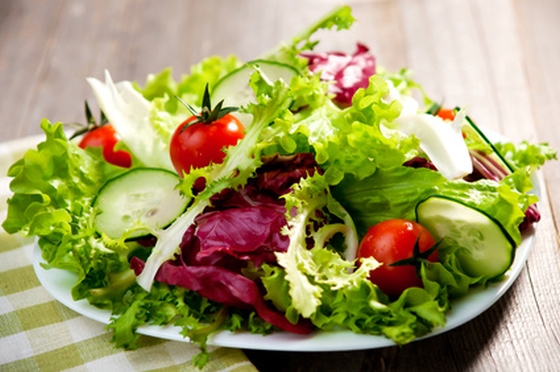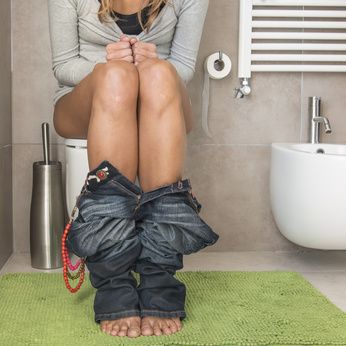Are you suffering from constipation? You are at the right place. I will help you relieve constipation in easy ways, step by step. I will explain every step in detail. Don’t worry, you don’t need to start doing all the steps today. You can bookmark this page, visit many times, understand fully, and have a complete relief.
Eat proper diet to relieve constipation
Eating a proper diet is the first step to take to relieve constipation. It is not a difficult task. I will tell you the exact way of doing it. The main principle of eating a balanced diet to regulate your bowel movements is getting enough fibre.
You need to take around 30 grams of fibre each day to have smooth bowel movements. There are two types of fibres found in foods. One is soluble, the other is insoluble. Both will help if you take them in the right amounts.
Only foods of plant origin have fibre. Foods such as meat, eggs, and fish don’t have it. Eating lots of plant-based foods such as fruits, vegetables, legumes, and grains is the best way of getting enough fibre.
I am not telling that you need to change to a vegetarian diet. You can have a balanced diet that contains both animal and plant based foods.
The following fibre-rich foods will help relieve your constipation.
Fruits:
Pears, apples, avocados, bananas, strawberries, raspberries, plums, guava, blueberries, blackberries.
Read this article for more information regarding fruits that can help cure constipation.
Vegetables:
Sweet potatoes, pumpkins, cabbage, spinach, Brussels sprouts, sweet corn, carrots, broccoli.
Legumes:
Navy beans, pinto beans, kidney beans, lentils, chickpeas, black beans.
Grain-based foods:
Wholemeal bread, wholemeal pasta, brown rice, oatmeal, high-fibre breakfast cereals.
Do I need to avoid any foods?
No, you don’t need to avoid anything. However, some foods in excess can make constipation worse. So, limit the consumption of the following foods.
- Milk and dairy products
- Coffee
- Chocolate
- Unripe bananas
- White rice
Difficult to eat fibre-rich foods? Then you can try a fibre supplement such as Metamucil. These supplements are usually made up of psyllium husk. Take 1 tablespoon of Metamucil powder, dissolve it in 300- 500ml water and drink immediately.
You can take fiber supplements every day. They don’t normally give side effects when you take the recommended dose.
Eat prunes or drink prune juice:
Prunes are dried plums that have high concentrations of fibre. In addition, they have a substance called sorbitol. It is a natural sugar alcohol that can alleviate constipation.
A recent study found that prunes are superior to psyllium husk in the management of chronic constipation.
Eat 5 – 8 prunes a day, that is usually enough. If you like prune juice, drink 2 glasses a day.
Drink more water to relieve constipation
 Having soft stools makes the bowel movements easier. When you are dehydrated, your body tries to absorb more water from the bowels. That makes the stools hard and dry.
Having soft stools makes the bowel movements easier. When you are dehydrated, your body tries to absorb more water from the bowels. That makes the stools hard and dry.
Drinking more water will help you relieve constipation by making your stools soft.
Dietary fibre needs water to do its job in the bowel. The fibre absorbs water and swells up. It forms soft and bulky stool that is easy to pass. If you don’t drink enough water, the fiber will not help you. It will make the constipation worse.
The amount of water you need to drink depends on many factors. The main determining factor is climate. You need to drink more water in a hot climate. You need less in winter times.
On average, you need around 2 litres of water per day. You need to increase this amount when you are constipated.
So, drink plenty of water. Keep in mind, pure water, not soft drinks or coffee.
Note: If you are suffering from heart failure or kidney failure, your doctor may ask you to restrict the water intake. Follow your doctor’s advice.
Develop a routine
Having a regular toilet habit is important for regular bowel movements. You should have a fixed toilet time. For example, every morning 7 o’clock. Don’t change this time without a clear reason.
Your body will adapt to the routine. Your bowels contract automatically at that time. That will make the deification easy.
A better time for the toilet is immediately after eating your breakfast. When food reaches your stomach, your bowels start contracting. It is called the gastrocolic reflex. The reflex makes passing stools easy.
Sit properly on the toilet seat
A proper sitting position is important for evacuating your bowels. You need to relax and take enough time. Sit on the toilet seat as on the image below.
Keep your knees together, slightly bend forward, support your body with your arms. That is the right posture. Some people advise to climb on the toilet seat and have a squirting position over it. That is dangerous. Don’t do that. Imagine if you slip and fall into the commode.
Don’t strain too much, that can cause pain. Too much straining can also cause haemorrhoids, rectal prolapse, and diverticulosis. Don’t spend too much time in the toilet. More than 5 minutes is not good.
Keep your toilet clean. A calm and clean environment make you feel relaxed. It will help you have easy bowel movements.
Be active
Being physically active is a way of combating constipation. Doing some exercise will make your muscles strong and active. Strong muscles in the abdominal wall will help you have easy bowel movements.
In addition, exercise helps increase the peristaltic movements of the bowel. These movements are essential for the propagation of stools towards the anus.
What type of exercise is good?
Well, any type. You can walk, run, or play tennis. Doesn’t matter about the type of exercise, you need to be active.
Some people recommend Yoga to mitigate chronic constipation. I agree with that. Yoga is a type of exercise that is good for your body and your mind.
Take a laxative or stool softener to relieve constipation
Want a quick relief from constipation? Then you need to take a commercially available remedy such as a laxative or stool softener.
Laxatives are medications that stimulate the bowels and make smooth bowel movements. There are many types of laxatives available on the market. You don’t need a prescription from your doctor to buy these products. You can buy them over the counter.
These are available as tablets, powder, liquid, and suppositories.
The most popular products are; Dulcolax, Coloxyl, Osmolax, Senokot, and Laxettes.
Laxatives are a good choice to relieve constipation when traveling.
Try some home remedies to relieve your constipation
There are many home remedies that can help with your constipation. However, these remedies are less effective and may have more side effects.
Castor oil is a commonly used home treatment. It acts as a stimulant laxative. That means castor oil increases the peristaltic movements of the bowels. One teaspoon a day is enough to relieve your constipation.
Some people use high dose vitamin C to relieve constipation. I won’t recommend this method because it is less effective and can cause kidney stones.
Some people recommend coconut oil and olive oil to cure constipation. There is no evidence that these remedies are effective.
Milk of magnesia is an effective treatment. However, it is not suitable for long term use.
Beat your stress
Stress is one of the important causes of constipation. Managing your stress will help you have regular bowel movements.
The following are some ways to relieve your stress.
- Don’t think too much
- Avoid people who make you stressed
- Learn to say “no” whenever you are unable to do things
- Express your feelings
- Do regular exercise
- Eat healthy
Want more tips? Read this article about stress management.
Seek medical help
You have tried all the above methods to alleviate constipation. You haven’t succeeded. Then this is the time to seek medical help.
Constipation can be due to serious medical conditions. Just taking over the counter medications may not be an appropriated treatment. The root cause of your constipation should be identified and treated.
Read this article on When to see a doctor for constipation.

